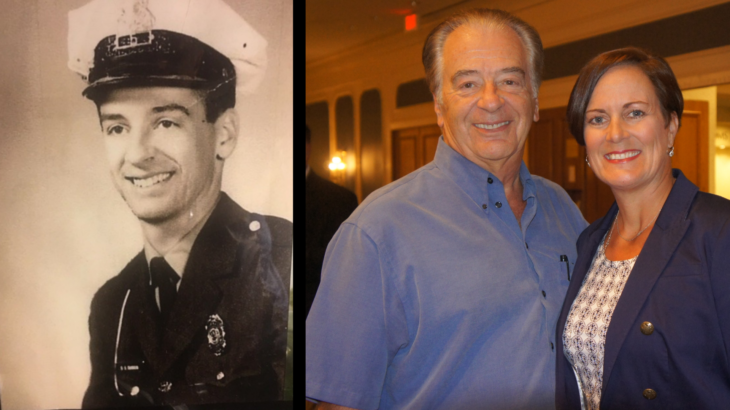In 1965, Don Rankin of Pritchard Sports was a rookie cop in Baltimore, walking a post.
“I knew I had a known police fighter on my beat. He was pointed out to me and I was told to be cautious.”
At 8 p.m. one night, Rankin walks into the P& M Lounge on North Avenue and there’s a fight. And there is that guy he’d been warned about — Country.
“I knew I didn’t want to fight him. So, I went up behind him. He was standing by a staircase. I gave him a shove in the back and he went down a flight of steps. And he gets up and just looks at me.
“Oh no, I’m in trouble now,” Rankin thought.
Rankin calls out down the stairwell: “Country, you’re under arrest. Meet me at the call box.”
In that era, police did not carry cellphones or even radios. They had to call in for a transport wagon from the call box.
Rankin went about getting things settled down in the lounge and went to the call box, never thinking Country would actually be there.
But Country was there, standing at the call box.
“Okay, Country, turn around.”
Rankin cuffed him and took him in. He didn’t resist.
The next morning before the judge, the judge says: “Country, I’m tired of seeing you in here fighting cops. Maybe I need to give you some hard time.”
Then he turned to Rankin: “Wait a minute, he didn’t fight you? He was at the call box waiting?”
Rankin responded in the affirmative, and the judge turned to Country.
“Why didn’t you fight him?”
“Because he’s always been fair.”
Lesson learned: “It didn’t strike me at the time, but I realized that’s how I want to be known. Not only to internal customers but to external customers. Make every one of them feel important. And always be fair.”
Baltimore is very much in the news these days, for all the wrong reasons. This one example from one of our own, helps put events into perspective. People are people. Fair is fair.
Rankin has had a long post-police career in building maintenance with Pritchard Sports and that early lesson has influenced his whole life.
He will also never forget the time he left the police force and was working for a small company, Supreme Services, in Baltimore. There was a little reception area where people would come to apply for jobs.
One day, the receptionist came to Rankin and said there was an applicant who looked really good. Would he come and meet him?
Rankin opened the door to meet the applicant and all of a sudden, he sees the man has his hands up and is backing out the exit.
As he retreated, he said, “Sergeant, I paid my dues.”
“It all of a sudden hit me, it was the guy who shot me,” Rankin remembers.
He was shot twice in 20 years on the police force in Baltimore. “This particular incident involved a raid on a pool hall where we were looking for someone else. He thought we were coming after him and pulled and fired as soon as I came through the door. He got 20 years to life. He got paroled after 15 years and really worked to straighten his life out. He had a terrible childhood, including parental abuse, and went down the wrong road with the wrong people. When I interviewed him, I just had a feeling that this was something I needed to do. I hired him.”
It was the right move. More than the fair thing to do.
“He would have gone through a brick wall for me. He turned out to be one of my best employees. He always showed up on time, never missed a day, did his job. He just needed that chance. He screwed up, he did, he made a bad mistake. But I gave him a chance. It didn’t need to affect his whole life.”
“That’s extreme. It doesn’t happen every day. But it illustrates how I want to be remembered — I was fair.” — Based on a true story as told to Linda Deckard
(Photos: Don Rankin as a Baltimore cop; Rankin and Kim Stone, one of his longtime clients, now with Chase Center, San Francisco.)

Don
A terrific story and moral at a time we need good news. I think you need to write a book. It would be a best seller
Great example Don.
Don, I have known you forever but I did not know that story, the high respect that I hold for you has grown again!